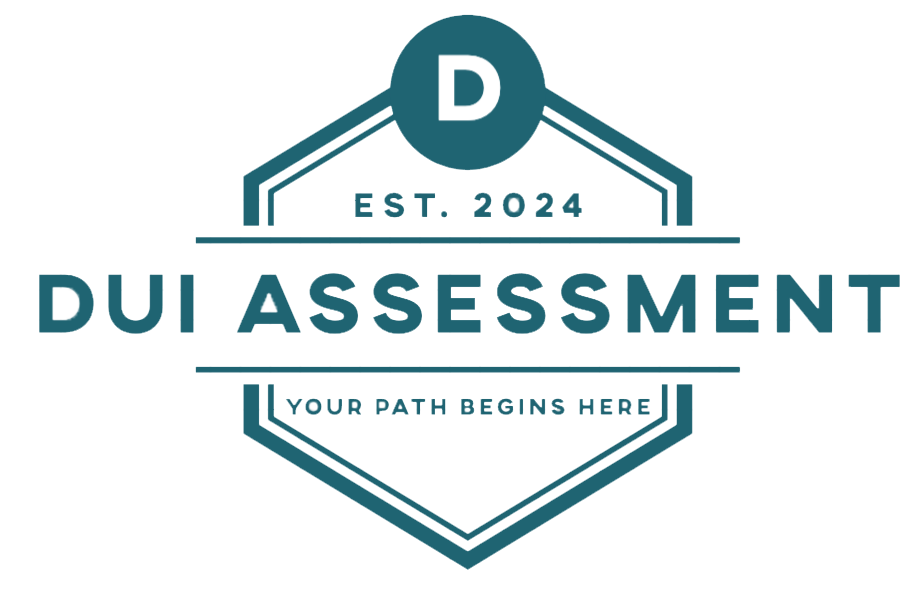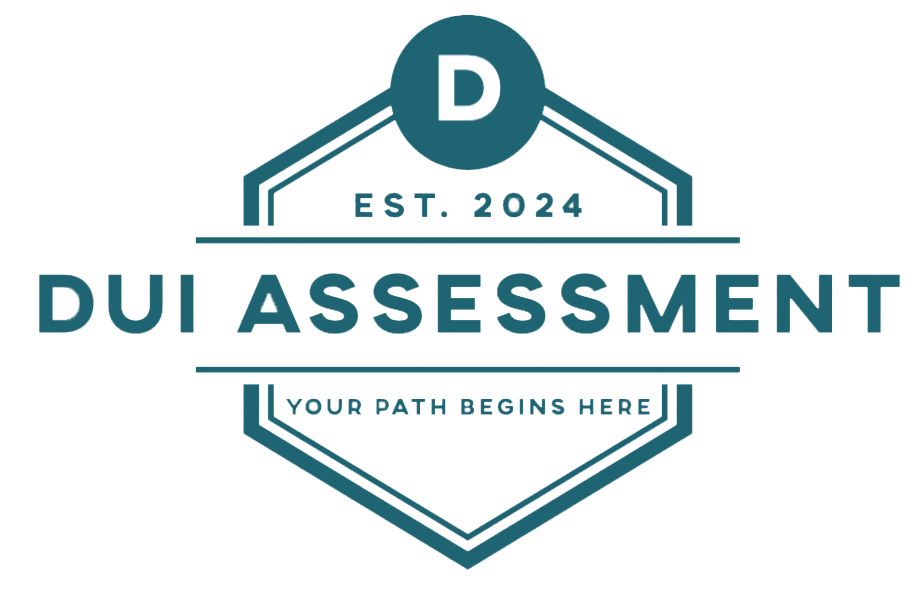Facing a DUI charge can be an overwhelming experience that brings uncertainty about legal requirements, potential consequences, and the path forward. Among the various court-ordered obligations you may encounter, DUI assessments represent one of the most important and potentially beneficial components of the legal process. Understanding what these evaluations involve, why they’re required, and how to navigate them successfully can make a significant difference in both your legal outcomes and personal well-being.
The landscape of impaired driving enforcement has evolved dramatically over the past several decades, with courts increasingly recognizing that effective intervention requires more than simple punishment. Modern approaches to DUI cases emphasize identifying underlying factors that contribute to impaired driving decisions and addressing these issues through targeted interventions. This shift reflects extensive research demonstrating that individuals who receive appropriate assessment and treatment have substantially lower rates of repeat offenses compared to those who only complete basic penalties.
Understanding the Purpose and Scope of DUI Assessments
DUI assessments serve multiple critical functions within the legal system and rehabilitation framework. These comprehensive evaluations go far beyond simple questionnaires or brief conversations with counselors. Instead, they represent thorough clinical examinations designed to understand your relationship with alcohol, identify any substance use disorders, evaluate contributing factors to your DUI incident, and develop appropriate treatment recommendations.
The primary purpose of these assessments is to provide courts with objective, professional insight into your alcohol use patterns and any underlying issues that may require intervention. Rather than making assumptions based solely on the circumstances of your arrest, judges can review detailed professional evaluations that consider your complete history, current functioning, and specific risk factors.
For individuals facing DUI charges, these evaluations also represent an opportunity to demonstrate responsibility and commitment to addressing any issues that may have contributed to their situation. Courts often view voluntary engagement with the assessment process favorably, particularly when individuals approach the evaluation with honesty and openness to recommended interventions.
Modern DUI assessments also recognize the complexity of factors that can contribute to impaired driving decisions. Assessors examine not only alcohol consumption patterns but also mental health issues, social stressors, family history of substance abuse, employment challenges, and other environmental factors that may influence drinking behavior and decision-making processes.
The Legal Framework Requiring DUI Assessments
The requirement for DUI assessments varies significantly across different jurisdictions, reflecting differences in state laws, local court policies, and judicial discretion. However, most states now mandate some form of substance abuse evaluation for certain categories of DUI offenses, recognizing the public safety benefits of identifying and addressing underlying issues.
First-time DUI offenders with high blood alcohol content readings often face assessment requirements, as elevated BAC levels may indicate problematic drinking patterns that warrant further evaluation. Many jurisdictions set specific BAC thresholds that automatically trigger assessment requirements, typically ranging from 0.15 to 0.20 depending on state laws.
Repeat DUI offenders almost universally face assessment requirements, as multiple incidents suggest ongoing issues with alcohol use and decision-making that require professional intervention. The specific type and intensity of assessment may increase with each subsequent offense, reflecting the escalating public safety concerns associated with repeat impaired driving.
DUI cases involving accidents, injuries, or property damage frequently require assessments regardless of BAC levels or prior offense history. These situations demonstrate the real-world consequences of impaired driving and suggest the need for comprehensive evaluation to prevent future incidents.
Some jurisdictions mandate assessments for all DUI convictions regardless of specific circumstances, while others allow judges discretionary authority to order evaluations based on case details. Understanding your local requirements is essential for ensuring compliance with all court orders and avoiding potential complications in your case.
Types of Assessment Providers and Their Specializations
The provider landscape for DUI assessments has expanded considerably as demand for these services has grown. Different types of professionals and organizations offer assessment services, each with particular strengths and areas of expertise that may be more or less appropriate for different situations.
Licensed clinical social workers represent one of the largest groups of assessment providers, bringing extensive training in both substance abuse and mental health issues to their evaluations. These professionals are typically well-equipped to identify co-occurring conditions and provide comprehensive treatment recommendations that address multiple factors contributing to DUI incidents.
Licensed professional counselors with substance abuse specializations offer another common option for assessment services. Many of these providers have specific training and experience in addiction assessment and treatment, making them particularly knowledgeable about substance use disorders and appropriate intervention strategies.
Psychologists may conduct assessments, particularly in cases involving complex mental health considerations or when psychological testing is required to clarify diagnosis or treatment needs. These professionals bring specialized expertise in psychological assessment and can identify cognitive, emotional, or behavioral factors that may require specific intervention approaches.
Specialized DUI assessment programs have emerged in many communities, focusing exclusively on court-ordered evaluations for impaired driving cases. These programs often have streamlined processes, extensive familiarity with local court requirements, and standardized approaches to assessment and reporting. While they may offer less individualized attention than private practitioners, they typically provide efficient service and comprehensive understanding of legal requirements.
Community mental health centers provide assessment services, often at reduced costs for individuals with limited financial resources. These organizations frequently accept various insurance plans and may offer sliding scale fees based on income, making assessments more accessible for people facing financial challenges.
Hospital-based behavioral health programs sometimes offer substance abuse assessments as part of their outpatient services. These settings may be particularly appropriate for individuals with complex medical histories or co-occurring health conditions that require medical consultation or oversight.
What to Expect During the Assessment Process
The assessment process typically involves much more extensive evaluation than many people anticipate. Most DUI assessments require face-to-face interviews lasting between one and four hours, depending on the complexity of your situation and the specific requirements in your jurisdiction.
Assessors will conduct detailed exploration of your alcohol consumption history, including when you began drinking, typical consumption patterns, changes in drinking behavior over time, and any periods of reduced consumption or abstinence. This information helps professionals understand whether your DUI incident represents typical drinking behavior or an unusual circumstance.
Family history receives significant attention during assessments, as genetic predisposition to substance use disorders represents an important risk factor that influences treatment recommendations. Assessors will ask about substance abuse, mental health issues, and other relevant conditions among family members, particularly parents and siblings.
Mental health evaluation represents another critical component of comprehensive assessments. Many people don’t recognize connections between their emotional well-being and their drinking patterns, but identifying these relationships can be crucial for developing effective treatment recommendations. Assessors will explore any history of depression, anxiety, trauma, mood disorders, or other psychological conditions that may contribute to problematic alcohol use.
The circumstances surrounding your specific DUI incident will receive thorough examination, including what you were drinking, over what time period, your perceived level of intoxication, decision-making processes that led to driving, and your emotional state at the time. This information helps assessors understand the context of your incident and identify factors that may require intervention to prevent future occurrences.
Employment history, educational background, social support systems, living situation, financial stressors, and other environmental factors also receive attention during assessments. These areas can significantly influence drinking behavior and treatment success, making them important considerations for developing appropriate recommendations.
Many assessments include standardized questionnaires such as the AUDIT (Alcohol Use Disorders Identification Test), SASSI (Substance Abuse Subtle Screening Inventory), or other validated instruments designed to identify problematic drinking patterns and assess readiness for treatment. These tools provide objective measures that complement clinical interviews and help ensure comprehensive evaluation.
Preparing for Your Assessment: Strategies for Success
Proper preparation can significantly enhance both the quality of your assessment and the efficiency of the evaluation process. The goal isn’t to present yourself unrealistically, but rather to ensure that the assessor has access to complete and accurate information about your situation.
Gathering relevant documentation before your appointment represents an essential first step. This includes court paperwork related to your DUI case, any previous substance abuse treatment records, mental health treatment history, medical records that might relate to your alcohol use, documentation of current medications, and any other professional evaluations you’ve received.
Consider your alcohol use history carefully and prepare to discuss it in detail. Many people find it helpful to write down information about their drinking patterns, including when they typically consume alcohol, usual quantities, any changes in consumption over time, and periods when they’ve reduced or stopped drinking entirely. This preparation helps ensure you provide accurate information during the interview rather than trying to recall details spontaneously.
Think about the specific circumstances surrounding your DUI incident and be prepared to discuss them openly and honestly. Remember that the assessor’s role is not to judge your decisions but to understand the factors that contributed to your situation so they can make appropriate recommendations for moving forward.
Consider any mental health symptoms you’ve experienced, including depression, anxiety, mood changes, sleep problems, relationship difficulties, work stress, or other psychological issues that might relate to your alcohol use. Many people initially don’t recognize connections between their emotional well-being and their drinking patterns, but identifying these relationships can be crucial for receiving appropriate recommendations.
Review your family history and be prepared to discuss any substance abuse, mental health issues, or other relevant conditions among family members. This information helps assessors understand potential genetic or environmental risk factors that may influence your situation and treatment needs.
Understanding Assessment Results and Treatment Recommendations
Following your evaluation, the assessor will prepare a comprehensive report that typically includes several key components designed to provide courts and other stakeholders with detailed information about your situation and needs.
The diagnostic section of the report will indicate whether you meet criteria for an alcohol use disorder and, if so, the severity level (mild, moderate, or severe) based on standardized diagnostic criteria from the Diagnostic and Statistical Manual of Mental Disorders. This determination significantly influences the types of interventions that may be recommended and can impact legal proceedings in your case.
Risk assessment components evaluate your likelihood of future alcohol-related problems or repeat DUI incidents based on various factors identified during the evaluation. This assessment helps courts make informed decisions about sentencing, probation terms, and monitoring requirements.
Treatment recommendations represent perhaps the most important component of assessment reports, as they outline specific interventions designed to address issues identified during the evaluation. These recommendations might include alcohol education classes for individuals with minimal substance abuse concerns, outpatient counseling for those with moderate issues, intensive outpatient programs for more significant problems, residential treatment for severe cases, or ongoing monitoring and support services.
The report typically goes directly to the court, your attorney, or your probation officer, depending on your specific legal situation. However, you should also receive a copy of the report, and you have the right to discuss the findings and recommendations with the assessor to ensure you understand what’s been recommended and the reasoning behind these suggestions.

Navigating Costs and Insurance Considerations
Assessment costs vary significantly based on multiple factors including geographic location, provider type, assessment complexity, and local market conditions. Understanding these cost considerations and potential insurance coverage can help you make informed decisions about providers and financial planning.
Private practitioners typically charge between $200 and $800 for comprehensive DUI assessments, with costs varying based on the time required, complexity of the evaluation, and local market rates. Psychologists and other doctoral-level providers often charge higher fees than master’s-level counselors or social workers.
Specialized DUI assessment programs may offer more standardized pricing, typically ranging from $150 to $400 for standard evaluations. These programs often have streamlined processes that can reduce costs while still providing comprehensive assessment services.
Community mental health centers and other public or non-profit organizations frequently offer sliding scale fees based on income, making assessments more accessible for individuals with limited financial resources. These programs may charge as little as $50 to $150 for qualifying individuals, though waiting lists may be longer than with private providers.
Insurance coverage for DUI assessments varies considerably between different plans and insurance companies. Some insurers cover these evaluations under mental health or substance abuse benefits, while others consider them court-ordered services that fall outside covered benefits. Contact your insurance provider directly to inquire about coverage for substance abuse assessments, and be prepared to provide specific information about the type of evaluation required.
If your insurance covers the assessment, verify whether your chosen provider accepts your plan and whether you need prior authorizations or referrals. Some providers work directly with insurance companies to handle billing and authorization processes, while others require patients to pay upfront and seek reimbursement independently.
Following Through with Treatment Recommendations
Completing your assessment represents just the first step in a process that often extends well beyond the initial evaluation. Following through with assessment recommendations is typically required for legal compliance and can significantly impact the outcome of your case and your long-term well-being.
Treatment recommendations from DUI assessments vary widely based on evaluation findings but may include alcohol education classes, individual or group counseling, intensive outpatient programs, residential treatment, regular drug and alcohol testing, participation in mutual support groups, or ongoing case management services.
Approach recommended interventions with an open mind, even if they initially seem unnecessary or excessive for your situation. Many people discover that participating in recommended programs provides unexpected benefits beyond legal compliance, including improved coping skills, better understanding of factors that contributed to their DUI incident, enhanced social support networks, and overall improvements in life satisfaction and functioning.
Maintain regular communication with your attorney about your progress with recommended interventions, as completion of these requirements often influences plea negotiations, sentencing decisions, and probation terms. Document your participation in recommended programs carefully, as you may need to provide proof of compliance to the court or probation officers.
Consider the long-term implications of treatment recommendations rather than viewing them solely as legal obligations. Research consistently shows that individuals who engage meaningfully with recommended interventions experience lower rates of future legal problems, improved physical and mental health outcomes, enhanced relationships and social functioning, and better overall quality of life.
Common Challenges and How to Address Them
Many people encounter various challenges when navigating the DUI assessment process, but understanding these common issues and strategies for addressing them can help ensure a more successful experience.
Anxiety about the assessment process represents one of the most frequent concerns, particularly for individuals who have never participated in mental health or substance abuse evaluations. Remember that assessors are trained professionals whose goal is to conduct objective evaluations and provide helpful recommendations, not to judge or criticize your past decisions.
Financial concerns about assessment costs and potential treatment expenses can create significant stress. Research all available options including community mental health centers, sliding scale fee programs, insurance coverage, and payment plan arrangements. Don’t let financial concerns prevent you from completing required assessments, as failing to comply with court orders can result in more serious legal consequences.
Scheduling challenges may arise, particularly in areas with limited assessment providers or high demand for services. Begin researching providers and scheduling your assessment as soon as possible after receiving court orders. Some providers may have waiting lists, and you’ll need adequate time to complete the evaluation and receive results before any court deadlines.
Transportation difficulties can prevent some individuals from accessing assessment services, particularly in rural areas or for people with suspended licenses following DUI arrests. Explore public transportation options, ask family or friends for assistance, or consider providers who offer telehealth assessments when appropriate and legally acceptable.
Privacy concerns about sharing personal information during assessments are understandable but shouldn’t prevent honest disclosure. Remember that assessment providers are bound by confidentiality requirements, and providing accurate information is essential for receiving appropriate recommendations that serve your best interests.
Long-Term Benefits and Life Changes
While DUI assessments may initially feel like burdensome legal requirements, many people discover that the evaluation process and subsequent interventions lead to positive changes that extend far beyond resolving immediate legal obligations.
Increased self-awareness about drinking patterns, triggers, and risk factors often emerges from the assessment process. Many people report that the evaluation helped them recognize connections between their alcohol use and other life areas that they hadn’t previously considered, leading to more informed decision-making about drinking and overall health.
Improved coping skills frequently result from participation in recommended treatment programs. Learning new strategies for managing stress, anxiety, depression, or other emotional challenges can reduce reliance on alcohol as a coping mechanism and improve overall mental health and well-being.
Enhanced social support networks often develop through participation in group counseling, support groups, or other recommended interventions. These connections can provide ongoing encouragement, accountability, and friendship that support long-term positive changes.
Better physical health outcomes commonly occur when people reduce problematic alcohol consumption or develop healthier drinking patterns. Improved sleep, increased energy, weight management, and reduced risk of alcohol-related health problems represent some of the physical benefits that may result from addressing alcohol use concerns.
Stronger family relationships and improved social functioning often emerge as people address alcohol-related issues and develop better communication and conflict resolution skills through counseling or treatment programs.
Moving Forward: Maintaining Positive Changes
Successfully navigating DUI assessments and any subsequent treatment recommendations requires ongoing commitment to positive change and continued attention to factors that support healthy decision-making.
Maintain connections with supportive professionals and programs even after completing required interventions. Ongoing support can help sustain positive changes and provide resources for managing future challenges or stressors that might otherwise increase risk for problematic drinking or poor decision-making.
Continue practicing healthy coping strategies learned through treatment programs, and be proactive about seeking additional support during times of increased stress or life changes that might challenge your commitment to positive changes.
Stay informed about your ongoing legal obligations, including probation requirements, license restoration processes, and any long-term monitoring or reporting requirements related to your DUI case.
Consider your DUI incident and subsequent assessment as catalysts for positive life changes rather than simply obstacles to overcome. Many people find that addressing underlying issues related to their alcohol use leads to improvements in areas of life they hadn’t initially connected to their drinking patterns.
Get Help With Us Today
DUI assessments represent a critical component of the modern approach to impaired driving cases, offering opportunities for positive change while helping courts make informed decisions about appropriate interventions. Understanding what these evaluations involve, how to prepare effectively, and how to navigate the process successfully can make a significant difference in both your legal outcomes and personal well-being.
Approaching your assessment with preparation, honesty, and openness to potential positive changes can lead to outcomes that extend far beyond simple legal compliance. Remember that thousands of people successfully complete DUI assessments and subsequent requirements each year, often emerging from the process with improved understanding of their relationship with alcohol and enhanced skills for making healthier decisions in all areas of life.
The path forward after a DUI can be challenging, but with appropriate assessment, treatment when indicated, and commitment to positive change, you can work toward resolution of your legal issues while building healthier patterns and habits that serve you well long into the future. Your willingness to engage with this process thoughtfully and completely represents an investment in your future success and well-being that can yield benefits far beyond what you might initially expect. At DUI Assessment, we provide exactly that. Visit our website today at www.dui-assessment.com to learn more.


